#PACIFIC DISSENT
Link
An emerging peace movement
1 note
·
View note
Text
[...] Opting out of service isn’t straightforward. Refusal is rare partly because the army leaves little room for dissent. The Israeli high court of justice has ruled that while absolute pacifism is a valid reason for exemption, “selective refusal” – rejecting specific duties – is illegal. This stance, especially the refusal to serve in the occupied territories, is seen as a threat to national unity. Those few exempted on grounds of pacifism are also restricted from discussing the occupation or Israel’s politics more widely.
The IDF’s handling of refusers is also not consistent. Some face trials and multiple imprisonments before being discharged by a military psychiatric board. Others, like myself, are sent directly to this board. There, I had to articulate my beliefs to a tribunal of officers, which at 17 were more intuitive than clearly defined. The main method the army uses to release refusers is by declaring them mentally unfit for service, implying that in Israel dissent is equated with insanity.
The experience of getting out is disorienting, like stepping into an alternative reality. In my case, in the post-school wilderness and unskilled, I ended up in construction, a field shared by Palestinians, migrant workers and marginalised groups. Choices are slim for those who made the ethical choice to refuse enlistment, with plenty of personal and social ramifications. [...]
118 notes
·
View notes
Text
Original Zs’skayr

The original Zs’skayr was a cruel High Ecto Lord on Anur Phaetos. Enforcing his need for total control across its globe, handsomely rewarding his sycophants, and siccing his thralls onto dissenters.
At least until his tyrannical influence had begun intruding onto other planets, which caused the disparate populaces, collectively outnumbering his loyalists, to rise up and depose him. In a show of mercy he would never have afforded them if the roles were reversed, they banished a notably un-dismantled Zs’skayr instead of destroying him.

His own homeworld had forsaken him, and no place in Anur proper would have him. Few citizens of Anur had left the system, him included. The safest place he knew was remaining adrift in the vast expanse between planets and moons.
With no one to abuse or deflect to, having nothing left to his name, the cold vacuum of space gave him no choice but to begin introspection.
Zs’skayr lost the will to fight for his throne, as well as his hunger for power. There was little left to feel but shame.

With a new purpose in mind, he would explore the galaxy outside of his native system. In the face of his narrow-mindedness, Zs’skayr replaced his thirst for power with one for knowledge, and broaden his horizons.
To learn about the people and worlds outside Anur as well as he did the ones inside, he possessed various beings to explore.
A not insignificant amount took it poorly, such as on Vrykola—



They could’ve used their tools right then or come back with a mob holding pitchforks and torches, so he just counted his lucky stars and more discreetly picked a different host.
Most worlds were just confused, though.

A precious few took it well, like Aldabra—

The Geochelone Aerios were pleasantly surprised to meet an outsider who wished to learn and understand as much as they did, and they had a lot to discuss with him on autonomy and free will, as well as pacifism and de-escalation. Zs’skayr had much impromptu therapy there.
Some were even receptive to him outside of a more familiar host, or even outside of his (what he would come to recognize as appearing “less-threatening”) sun shade. In fact, the royal elect of the Chimeran Empire insisted on it.


That was mainly so it was easier for them and the snipers stationed around the capital to destroy Zs’skayr if he made a move they didn’t like.
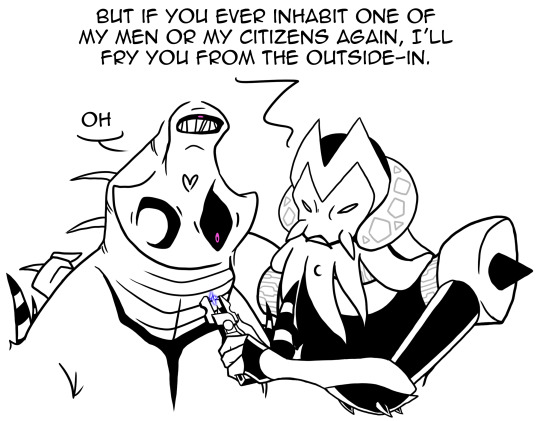
Aside from the dawning realization he had just unintentionally threatened an imperialistic military state in front of its leader, the tour he received was enjoyable. They did not make mention of Vilgax.
It was strange, because he had heard developing stories of Vilgax’s conquests and reigns of terror upon other worlds. Maybe it wasn’t so strange the Chimerans didn’t acknowledge this sensitive, worsening stain on their history.
Considering what he and Vilgax had in common, Zs’skayr thought that his kind may have adopted a similar attitude about him. He ultimately would prefer for truth to prevail above all, including information embargos/taboos for the sake of his or anyone’s comfort.
Tales of the Omnitrix’s development similarly spread throughout the galaxy, in hushed whispers, and on his travels, Zs’skayr heard nothing but its prospects as the ultimate weapon.

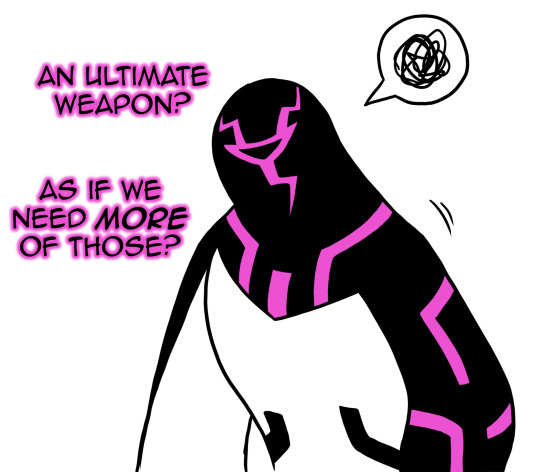
He was none too pleased, already being surrounded with violence and advancing weapons. It seemed to be all talk and no bite, however. Equal in frequency of stories about the Omnitrix were the ones debunking its existence. It never turned up within Zs’skayr’s vicinity, anyways.
He helped others,

and he was helped by others.

Eventually, Zs’skayr had learned all he wished to, talked to more people than most do in their lifetimes. He was homesick, but knew no good would come from trying to return to Phaetos.
Still wishing to be close, he found a habitable rock on the outskirts of the Anur system, far from Phaetos and made a home.

Since then, Zs’skayr had lived a quiet, humble life in isolation. Built up a cottage, sewed furniture, cultivated a garden in the gnarled wilds that managed to sprout on this rock.
He didn’t feel he deserved to live with his people again, and he didn’t deserve an update on how they were doing, however they decided to govern themselves in his absence. Whether it was good or bad, it wasn’t his business anymore, and they wouldn’t want to be bothered. He respects their wish.

He writes (working on a journal of his travels), he gardens, he goes out for walks and floats, he sleeps, he’s become a tea-fiend, even leaving his rock to the nearest nebula to collect stardust for flavoring. Just a place to wait out his days in peace, hurting no one, retired from social interaction.

At least until an outsider entering the Anur system noticed the clearly inhabited rock and landed to explore. Though painfully shy, Zs’skayr politely greeted her and asked what she wanted, balking at the mention of contributing to the Omnitrix’s creation. As far as he was concerned, it was some superweapon that probably didn’t actually exist, and if it did, he wanted no part in it.
Myaxx gave Zs’skayr the boilerplate explanation of the Omnitrix project her boss Azmuth wrote out for her to read out to all potential donors.
The Omnitrix is a device, not a weapon, that allows its user to become another species. The wielder would become a symbol of galactic unity among its denizens, and to help them grow closer together. It pulls from a catalogue of DNA samples volunteered by willing members of their species. Would Zs’skayr do the favor and, on their behalf, volunteer for the Ectonurites?

The idea of someone who could step into another being’s shoes, or rather, assume the guise of another species to bridge the gap was personal to him. It was a radical, ethical, almost impossibly ideal version of what he had done across the galaxy to understand others better.
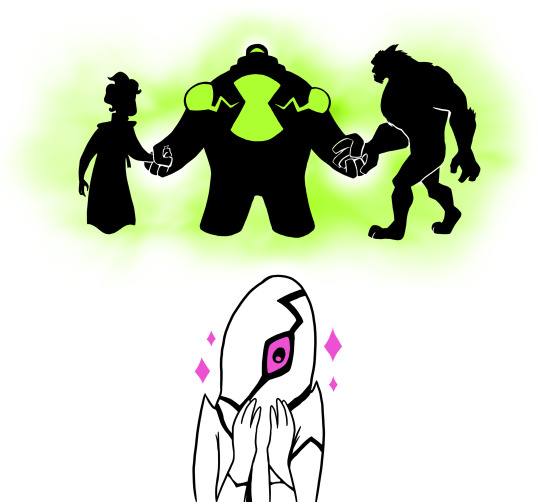
Zs’skayr could somehow contribute to the healing of entire worlds and systems. It was something he would have declined earlier in his life, and even doubted he could do now.
Moved by this, he agreed to be the Ectonurite donor for the Omnitrix and tore off a shred of his tentacle for her.

Unfortunately, a grave miscommunication neither realized had occurred. Zs’skayr knew that the sample had a copy of his consciousness on it, but believed that an Ectonurite was only being asked for a DNA sample because the Omnitrix project knew and had a way of correcting it.

Anur’s species are quite insular, rarely leaving or allowing outsiders, and as such, details of their anatomy are not common knowledge to them. Simply put, Myaxx didn’t know to ask, and Zs’skayr didn’t think to tell her.

The now original Zs’skayr then continued his isolation on the edge of Anur, secure in the knowledge that he, at last, could make a net positive impact.

He’d be proud to know of the difference Ben made with him, for the short while he could.
#nerd stuff#my art#scarletta doodles#ben 10#zs'skayr#ghostfreak#myaxx#p'andor#slix vigma#OCs#Unaxx#Tali Morro
114 notes
·
View notes
Note
TELL US ABOUT QUAKERISM
This is an absolutely hilarious thing to find in my inbox in all caps thank you so much 😂 I was going to say something like, "I'll try to keep this brief" but realistically I know I'm gonna waffle so BRACE FOR WAFFLING.
Quakers - also known as the Religious Society of Friends - are a denomination of Christianity that was founded in the mid-1600s in the north of England. It was part of the Dissenters movement, which is a term for a collection of Protestant denominations that grew up around that time out of criticism, dissatisfaction and... dissent... with the Church of England.
The branch of Quakerism that I belong to is actually in the global minority for Quakers. Most Quakers worldwide belong to evangelical branches and I'm not at all clear on how their theology differs from mainstream evangelical Christianity.
Those meetings (the Quaker term for churches/congregations) are what's called "programmed", which means their worship takes the form of a service easily recognisible by most Christians with hymns, a minister, prepared readings from the Bible, etc. I really can't speak much to that side of things as I know almost nothing abou it!
In contrast, my branch of Quakerism - by far the most common in Britain and Ireland, and I think I'm right in saying the most common in Europe and North Amerca though I'm not 100% sure - is "unprogrammed". There's no service, instead we sit together for an hour in silence. That silence might be broken by any person taking part who feels moved to stand up and speak - this is called "ministry" and for theist Quakers, it's understood as being a response to the promptings of what some people call the Light, some people call God, some people call the Holy Spirit.
This unusual worship style is an expression of the foundational Quaker belief that nobody has more of a connection to the holy than anyone else. A minister isn't better able to speak to God than a layperson, and we place a lot of emphasis on speaking to your own experiences of the divine and respecting others' experiences. A phrase often used to describe this idea is "There is that of God in everyone."
As well as unprogrammed worship, this side of Quakerism has historically been very socially and theologically liberal/radical. Early Quakers were very involved in prison reform and abolition of the slave trade, and that social consciousness has carried through the centuried to see Quakers involved in all sorts of social justice causes from pacifism and anti-war work to climate justice and queer liberation.
Quakerism is a non-credal faith, which means there's no list of beliefs you have to subscribe to in order to be a Quaker. It's also non-sacramental, so we don't have things like christenings, baptisms, communion, etc.
There is a difference between being a "member" of a meeting and being an "attender", but the differences are largely administrative and effect what kinds of roles you can take in the meeting rather than whether you're considered a "full" Quaker or not. Those roles are things like treasurer or clerk - logistical roles related to the running of the meeting rather than spiritual leadership - and they change hands regularly.
That said, there are some basic concepts aside from "that of God in everyone" that guide most Quaker ideas. These are called "testimonies", and there's no total consensus on what they are - I have a feeling different Quakers in the world have a different list - but the ones I'm familiar with are Peace, Equality, Truth and Simplicity. Some people add Sustainability, personally I think that's accounted for under the first four, namely Equality and Simplicity.
The Peace testimony might be the most famous Quaker principle. Quakers are a pacifist group (though not all Quakers agree on what that pacifism should look like...) and have oppose war and violence in all sorts of ways, from refusing to join the military and being conscientious objectors to not buying their children toy guns and so on.
Equality is pretty simple to get your head round! If all people have something holy in them, they all deserve to be treated fairly. Quakers resist personal and structural inequality, and we organise ourselves in a way that reflect that as well as working to make the world around us more equal and fair. This is both on a broad scale and on a granular one - some Quakers still use "thee/thou" because early Quakers did as a way of rejecting social hierarchies. Personally I prefer not to use salutations which stem from the same thing.
Simplicity is often simplified to a kind of general anti-consumerism, which is why I think Sustainability falls under this (I think it goes under Equality too because of the social impact of climate change etc). With this testimony, you're encouraged to find joy in simple pleasures and to appreciate the world around you. You don't need more stuff to be happy, and we owe it to ourselves and others to think carefully about how much we consume, what we consume, and why.
Finally, Truth or Integrity is about living up to your principles. It's about being honest with yourself about whether you're living your faith and putting your values into action, and about speaking the truth in all cases. Early Quakers refused to take legal vows or oaths, because they committed to always speaking the truth so it made no sense theologically for them to say "OK but for real now I'm actually being honest". I'd still "affirm" in court rather than take a vow, for the same reason.
All in all, I'm really proud of being a Quaker and personally I can see a lot of Quakerism in Monstrous Agonies (and all my writing!) which isn't very suprising because Quakerism informs a huge part of my life and worldview. It's not some kind of perfect, historically spotless religion - as well as being abolitionists, some Quakers were also slave-owners, for example, or were involved in the residential schools for Native Americans, and individual Quakers are as flawed as any other group. But I think we make a good effort at repairing those wrongs, being honest about our failings and making reparations.
Also, the porridge oats are nothing to do with us.
#im not sorry and im not going to pretend to be#i am simply not a person capable of being asked to tell someone about something and not Telling Them#monstrous askbox#always open to questions about quakers!!#quakerism#i am and remain the best looking and most fuckable quaker in podcasting
154 notes
·
View notes
Text
The International People’s Tribunal unanimously finds Philippine president Marcos Jr., former president Duterte, the Government of the Republic of the Philippines, US president Biden and the US government guilty of all charges of war crimes and violations of International Humanitarian Law (IHL).
For two days the tribunal heard moving testimonies from the witnesses, victims, and expert resource persons on the various violations of IHL by the US-backed Marcos Jr. and Duterte regimes in their US-directed ‘counterinsurgency’ in the Philippines. The overwhelming amount of compelling evidence presented by the Filipino people and the National Democratic Front of the Philippines (NDF) in their case, has left no doubt of the truthfulness of their assertion that the US-Marcos and US-Duterte regimes are guilty of various grave war crimes.
As Friends of the Filipino People in Struggle (FFPS) we applaud the Filipino people and their genuine representative, the NDF, on this great achievement in their pursuit of justice. This verdict is a testament to the strength of the toiling Filipino masses and their struggle for genuine social change. It plays an important role in exposing the violent US-puppet regimes of Marcos Jr and Duterte for their crimes against the Filipino people and bringing it to attention to the international community. Furthermore, it underscores the Filipino people’s right to self-determination and the justness of their struggle for national liberation.
We call on all solidarity allies and all those who support the Filipino people’s right to justice, to actively support and propagate the findings and verdict of the International People’s Tribunal!
CALL FOR A GLOBAL WEEK OF ACTION
In light of the International People’s Tribunal (IPT) of 2024 in which the Filipino people tried the US government and the US-backed Marcos and Duterte regimes to hold them accountable for their war crimes against them, Friends of the Filipino People in Struggle (FFPS) as one of the main convenors calls for urgently needed international support for the Filipino people and their cry for justice. Please join us in a Global Week of Action, 21-27 May 2024.
Global Week of Action: Condemn and end the war crimes of the US-backed Marcos and Duterte regimes! Support the Filipino people’s right to self-determination!
Background:
From former direct colony to neocolony, US stronghold over the Philippines as a strategic military outpost in Asia is crucial to the US government’s geopolitical agenda to maintain the entire Indo-Pacific region as the largest market for US surplus goods, a source of cheap raw materials, and source of cheap labor.
With increased US support under the Biden administration, the Duterte and now Marcos regimes have recycled and beefed up ‘anti-terrorist’ branding apparatuses such as the National Task Force to End Local Communist Armed Conflict (NTF-ELCAC) and the Anti-Terror Act (ATA), to legally justify the repression of dissent of a growing social movement for legitimate pro-people demands.
Both regimes have implemented US-directed so-called “counterinsurgency” operations against civilians and non-combatants in the Philippines and their repression of Filipino activists and solidarity allies abroad viciously terrorize the people, in clear violation of International Humanitarian Law (IHL).
The War Crimes Tribunal will examine violations of international humanitarian law both as to the means and methods of warfare and the objects and subjects of attack, including extrajudicial and summary killings of civilians and hors d’ combat, desecration of remains of combatants, massacre of civilians and other forms of collective punishment, torture, enforced disappearances, mass arrests, indiscriminate firing, indiscriminate aerial bombing of communities and use of white phosphorus bombs, hamletting, terrorist labelling and use of repressive terror laws, assassination of civilians, attacks on schools, fake or forced surrenders, attacks against peace consultants and other forms of suppression.
To justify their war crimes, the US-Marcos and US-Duterte administrations have continuously tried to put up a vague and false framework of fighting against “terrorism”. In reality, the resistance of the Filipino people is a mass movement that steadfastly and comprehensively advances their democratic rights and their right to self-determination. When they take up arms, they do so to defend the right of the toiling people to their land and of all Filipino people to be free of national and social oppression and exploitation. As such the National Democratic Front of the Philippines (NDFP), the united front organization of the fighting Filipino masses, represents the Filipino people and their aspirations for national liberation and genuine social change.
The NDFP has demonstrated to the international community not only the necessity and justness of the people’s war in the Philippines, but that armed struggle is a legitimate exercise of the Filipino people’s inherent right to self-determination, as recognized through various international laws and intergovernmental declarations, and whose conduct is bound to the rules of war outlined in International Humanitarian Law.
The time is urgent for the international community to heighten its response to the loud cry of the Filipino people for justice and accountability and to expose the war crimes of the US-Marcos regime and its predecessor, the US-Duterte regime.
Let us express our unwavering support with the Filipino people’s right to self-determination and stand in international solidarity with their struggle for just and lasting peace in the Philippines.
Read more about the International People’s Tribunal 2024 on: https://peoplestribunal.net/
The particular objectives of the Global Week of Action are to:
Amplify and support the Filipino people’s cry for justice and the outcome (verdict of the tribunal and witness testimonies) of the International War Crimes Tribunal on the US-directed ‘Counterinsurgency’ in the Philippines, IPT 2024.
Expose and oppose US imperialism and its role in the “counterinsurgency” war on the Filipino people and to further expose and isolate the criminal and bloody US-Marcos and US-Duterte regimes from the international community.
Express our unwavering support for the Filipino people’s right to self-determination and for us to stand in solidarity with the Filipino people’s struggle for just and lasting peace in the Philippines.
Engage with key parliamentarians, policy-making bodies, and institutions to further isolate the US-backed Marcos and Duterte regime by promoting the findings of the IPT and advocating for the demands of the victims of the ongoing war crimes for justice.
How can you join?
Mobilize! Hold demonstrations and other actions on 21-27 May 2024 to amplify and support the Filipino people’s cry for justice. These can include militant demonstrations, creative media actions, direct actions and art initiatives, symbolic actions at key institutions such as by submitting the verdict to selected Philippine embassies/consulates, to the EU parliament, the ICC, the UN, national parliament/congress, etc., and any other ways to achieve above mentioned objectives.
Engage your local, traditional and new media for wide coverage, tag @peoplestribunal for all your social media propaganda and contact [email protected] for further media coordination or liaisoning. Some of the witnesses may be available to attend such activities in Europe if planned in advance, kindly reach out to [email protected] to coordinate your actions.
We urge organizations to come up with their own statements of support for the IPT and the findings/verdict of the tribunal. Other actions may include organizing info sessions to promulgate the verdict or social media campaigns (i.e., #PeoplesVerdict, #USGuilty, #DuterteGuilty #MarcosGuilty, etc.) to highlight the cases of IHL violations filed against the US-Marcos and US-Duterte regimes.
To support the Filipino people’s cry for justice we are also calling for lobbying efforts through dialogues with key personalities, such as parliamentarians, government officials, church leaders, and others with the objective of garnering broad support for the IPT, its verdict and for the Filipino people’s struggle. Let us stand in full solidarity with the Filipino people as they resist the onslaught of US imperialist violence and the war crimes committed by the US-backed Marcos and Duterte regimes!
Suggested slogans:
“Justice for the Filipino people!”
“Marcos and Duterte, war criminals!”
“US imperialist, #1 terrorist!”
“Stop the bombings in the Philippines!”
“Stop arms sales and military aid to the Philippines!”
“End US-Marcos state terrorism in the Philippines!”
“End US aggression in the Philippines!”
“We support the Filipino aspiration: National Liberation against US imperialism!”
“Wage militant actions against US imperialist war-mongering!”
“Just and lasting peace in the Philippines!”
“Support genuine democracy, support the NDFP!”
There will be a final version of the verdict, including detailed accounts and summaries of the cases presented, made available in due time. You can read the full initial verdict here: https://peoplestribunal.net/wp-content/uploads/2024/05/IPT-2024-INITIAL-Verdict-18-May.pdf
12 notes
·
View notes
Text
When New York City recently released a grotesque “public service announcement” video explaining that you should stay indoors during a nuclear war, the corporate media reaction was principally not outrage at the acceptance of such a fate or the stupidity of telling people “You’ve got this!” as if they could survive the apocalypse by cocooning with Netflix, but rather mockery of the very idea that a nuclear war might happen. U.S. polling on people’s top concerns find 1% of people most concerned about the climate and 0% most concerned about nuclear war.
Yet, the U.S. just illegally put nukes into a 6th nation (and virtually nobody in the U.S. can name either it or the other five that the U.S. already illegally had nukes in), while Russia is talking about putting nukes into another nation too, and the two governments with most of the nukes increasingly talk — publicly and privately — about nuclear war. The scientists who keep the doomsday clock think the risk is greater than ever. There’s a general consensus that shipping weapons to Ukraine at the risk of nuclear war is worth it — whatever “it” may be. And, at least within the head of U.S. Speaker of the House Nancy Pelosi, voices are unanimous that a trip to Taiwan is worth it too.
Trump tore up the Iran agreement, and Biden has done everything possible to keep it that way. When Trump proposed talking with North Korea, the U.S. media went insane. But it’s the administration that hit the height of inflation-adjusted military spending, set the record for number of nations simultaneously bombed, and invented robot-plane warfare (that of Barack Obama) for which one must painfully now long, as he did the ridiculous-but-better-than-war Iran deal, refused to arm Ukraine, and didn’t have time to get a war going with China. The arming of Ukraine by Trump and Biden has done more for the chances of vaporizing you than anything else, and anything short of all-out bellicosity by Biden has been greeted with blood-thirsty howls by your friendly corporate U.S. news outlets.
Meanwhile, exactly like the people of Hiroshima and Nagasaki, and the guinea-pigged human residents of the much larger Pacific island nuclear experiments, and the downwinders everywhere, nobody sees it coming. And, even more so, people have been trained to be absolutely convinced that there’s nothing they could possibly do to change things if they did become aware of any sort of problem. So, it’s remarkable the efforts those paying any attention are putting up, for example:
Cease Fire and Negotiate Peace in Ukraine
Don’t Get Yanked into War With China
Global Appeal to Nine Nuclear Governments
Say No to Nancy Pelosi’s Dangerous Taiwan Trip
VIDEO: Abolishing Nuclear Weapons Globally & Locally — A Webinar
June 12th Anti-Nuclear Legacy Videos
Defuse Nuclear War
August 2: Webinar: What could trigger nuclear war with Russia and China?
August 5: 77 Years Later: Eliminate Nukes, Not Life on Earth
August 6: “The Day After” film screening and discussion
August 9: Hiroshima-Nagasaki Day 77th Anniversary Commemoration
Seattle to Rally for Nuclear Abolition
A little background on Hiroshima and Nagasaki:
The nukes did not save lives. They took lives, possibly 200,000 of them. They were not intended to save lives or to end the war. And they didn’t end the war. The Russian invasion did that. But the war was going to end anyway, without either of those things. The United States Strategic Bombing Survey concluded that, “… certainly prior to 31 December, 1945, and in all probability prior to 1 November, 1945, Japan would have surrendered even if the atomic bombs had not been dropped, even if Russia had not entered the war, and even if no invasion had been planned or contemplated.”
One dissenter who had expressed this same view to the Secretary of War and, by his own account, to President Truman, prior to the bombings was General Dwight Eisenhower. Under Secretary of the Navy Ralph Bard, prior to the bombings, urged that Japan be given a warning. Lewis Strauss, Advisor to the Secretary of the Navy, also prior to the bombings, recommended blowing up a forest rather than a city. General George Marshall apparently agreed with that idea. Atomic scientist Leo Szilard organized scientists to petition the president against using the bomb. Atomic scientist James Franck organized scientists who advocated treating atomic weapons as a civilian policy issue, not just a military decision. Another scientist, Joseph Rotblat, demanded an end to the Manhattan Project, and resigned when it was not ended. A poll of the U.S. scientists who had developed the bombs, taken prior to their use, found that 83% wanted a nuclear bomb publicly demonstrated prior to dropping one on Japan. The U.S. military kept that poll secret. General Douglas MacArthur held a press conference on August 6, 1945, prior to the bombing of Hiroshima, to announce that Japan was already beaten.
The Chairman of the Joint Chiefs of Staff Admiral William D. Leahy said angrily in 1949 that Truman had assured him only military targets would be nuked, not civilians. “The use of this barbarous weapon at Hiroshima and Nagasaki was of no material assistance in our war against Japan. The Japanese were already defeated and ready to surrender,” Leahy said. Top military officials who said just after the war that the Japanese would have quickly surrendered without the nuclear bombings included General Douglas MacArthur, General Henry “Hap” Arnold, General Curtis LeMay, General Carl “Tooey” Spaatz, Admiral Ernest King, Admiral Chester Nimitz, Admiral William “Bull” Halsey, and Brigadier General Carter Clarke. As Oliver Stone and Peter Kuznick summarize, seven of the United States’ eight five-star officers who received their final star in World War II or just after — Generals MacArthur, Eisenhower, and Arnold, and Admirals Leahy, King, Nimitz, and Halsey — in 1945 rejected the idea that the atomic bombs were needed to end the war. “Sadly, though, there is little evidence that they pressed their case with Truman before the fact.”
On August 6, 1945, President Truman lied on the radio that a nuclear bomb had been dropped on an army base, rather than on a city. And he justified it, not as speeding the end of the war, but as revenge against Japanese offenses. “Mr. Truman was jubilant,” wrote Dorothy Day. Weeks before the first bomb was dropped, on July 13, 1945, Japan had sent a telegram to the Soviet Union expressing its desire to surrender and end the war. The United States had broken Japan’s codes and read the telegram. Truman referred in his diary to “the telegram from Jap Emperor asking for peace.” President Truman had been informed through Swiss and Portuguese channels of Japanese peace overtures as early as three months before Hiroshima. Japan objected only to surrendering unconditionally and giving up its emperor, but the United States insisted on those terms until after the bombs fell, at which point it allowed Japan to keep its emperor. So, the desire to drop the bombs may have lengthened the war. The bombs did not shorten the war.
Presidential advisor James Byrnes had told Truman that dropping the bombs would allow the United States to “dictate the terms of ending the war.” Secretary of the Navy James Forrestal wrote in his diary that Byrnes was “most anxious to get the Japanese affair over with before the Russians got in.” Truman wrote in his diary that the Soviets were preparing to march against Japan and “Fini Japs when that comes about.” The Soviet invasion was planned prior to the bombs, not decided by them. The United States had no plans to invade for months, and no plans on the scale to risk the numbers of lives that U.S. school teachers will tell you were saved. The idea that a massive U.S. invasion was imminent and the only alternative to nuking cities, so that nuking cities saved huge numbers of U.S. lives, is a myth. Historians know this, just as they know that George Washington didn’t have wooden teeth or always tell the truth, and Paul Revere didn’t ride alone, and slave-owning Patrick Henry’s speech about liberty was written decades after he died, and Molly Pitcher didn’t exist. But the myths have their own power. Lives, by the way, are not the unique property of U.S. soldiers. Japanese people also had lives.
Truman ordered the bombs dropped, one on Hiroshima on August 6th and another type of bomb, a plutonium bomb, which the military also wanted to test and demonstrate, on Nagasaki on August 9th. The Nagasaki bombing was moved up from the 11th to the 9th to decrease the likelihood of Japan surrendering first. Also on August 9th, the Soviets attacked the Japanese. During the next two weeks, the Soviets killed 84,000 Japanese while losing 12,000 of their own soldiers, and the United States continued bombing Japan with non-nuclear weapons — burning Japanese cities, as it had done to so much of Japan prior to August 6th that, when it came time to pick two cities to nuke, there hadn’t been many left to choose from. Then the Japanese surrendered.
That there was cause to use nuclear weapons is a myth. That there could again be cause to use nuclear weapons is a myth. That we can survive significant further use of nuclear weapons is a myth — NOT a “public service announcement.” That there is cause to produce nuclear weapons even though you’ll never use them is too stupid even to be a myth. And that we can forever survive possessing and proliferating nuclear weapons without someone intentionally or accidentally using them is pure insanity.
Why do U.S. history teachers in U.S. elementary schools today — in 2022! — tell children that nuclear bombs were dropped on Japan to save lives — or rather “the bomb” (singular) to avoid mentioning Nagasaki? Researchers and professors have poured over the evidence for 75 years. They know that Truman knew that the war was over, that Japan wanted to surrender, that the Soviet Union was about to invade. They’ve documented all the resistance to the bombing within the U.S. military and government and scientific community, as well as the motivation to test bombs that so much work and expense had gone into, as well as the motivation to intimidate the world and in particular the Soviets, as well as the open and shameless placing of zero value on Japanese lives. How were such powerful myths generated that the facts are treated like skunks at a picnic?
In Greg Mitchell’s 2020 book, The Beginning or the End: How Hollywood — and America — Learned to Stop Worrying and Love the Bomb, we have an account of the making of the 1947 MGM film, The Beginning or the End, which was carefully shaped by the U.S. government to promote falsehoods. The film bombed. It lost money. The ideal for a member of the U.S. public was clearly not to watch a really bad and boring pseudo-documentary with actors playing the scientists and warmongers who had produced a new form of mass-murder. The ideal action was to avoid any thought of the matter. But those who couldn’t avoid it were handed a glossy big-screen myth. You can watch it online for free, and as Mark Twain would have said, it’s worth every penny.
The film opens with what Mitchell describes as giving credit to the UK and Canada for their roles in producing the death machine — supposedly a cynical if falsified means of appealing to a larger market for the movie. But it really appears to be more blaming than crediting. This is an effort to spread the guilt. The film jumps quickly to blaming Germany for an imminent threat of nuking the world if the United States didn’t nuke it first. (You can actually have difficulty today getting young people to believe that Germany had surrendered prior to Hiroshima, or that the U.S. government knew in 1944 that Germany had abandoned atomic bomb research in 1942.) Then an actor doing a bad Einstein impression blames a long list of scientists from all over the world. Then some other personage suggests that the good guys are losing the war and had better hurry up and invent new bombs if they want to win it.
Over and over we’re told that bigger bombs will bring peace and end war. A Franklin Roosevelt impersonator even puts on a Woodrow Wilson act, claiming the atom bomb might end all war (something a surprising number of people actually believe it did, even in the face of the past 75 years of wars, which some U.S. professors describe as the Great Peace). We’re told and shown completely fabricated nonsense, such as that the U.S. dropped leaflets on Hiroshima to warn people (and for 10 days — “That’s 10 days more warning than they gave us at Pearl Harbor,” a character pronounces) and that the Japanese fired at the plane as it approached its target. In reality, the U.S. never dropped a single leaflet on Hiroshima but did — in good SNAFU fashion — drop tons of leaflets on Nagasaki the day after Nagasaki was bombed. Also, the hero of the movie dies from an accident while fiddling with the bomb to get it ready for use — a brave sacrifice for humanity on behalf of the war’s real victims — the members of the U.S. military. The film also claims that the people bombed “will never know what hit them,” despite the film makers knowing of the agonizing suffering of those who died slowly.
One communication from the movie makers to their consultant and editor, General Leslie Groves, included these words: “Any implication tending to make the Army look foolish will be eliminated.”
The main reason the movie is deadly boring, I think, is not that movies have sped up their action sequences every year for 75 years, added color, and devised all kinds of shock devices, but simply that the reason anybody should think the bomb that the characters all talk about for the entire length of the film is a big deal is left out. We don’t see what it does, not from the ground, only from the sky.
Mitchell’s book is a bit like watching sausage made, but also a bit like reading the transcripts from a committee that cobbled together some section of the Bible. This is an origin myth of the Global Policeman in the making. And it’s ugly. It’s even tragic. The very idea for the film came from a scientist who wanted people to understand the danger, not glorify the destruction. This scientist wrote to Donna Reed, that nice lady who gets married to Jimmy Stewart in It’s a Wonderful Life, and she got the ball rolling. Then it rolled around an oozing wound for 15 months and voilà, a cinematic turd emerged.
There was never any question of telling the truth. It’s a movie. You make stuff up. And you make it all up in one direction. The script for this movie contained at times all sorts of nonsense that didn’t last, such as the Nazis giving the Japanese the atomic bomb — and the Japanese setting up a laboratory for Nazi scientists, exactly as back in the real world at this very time the U.S. military was setting up laboratories for Nazi scientists (not to mention making use of Japanese scientists). None of this is more ludicrous than The Man in the High Castle, to take a recent example of 75 years of this stuff, but this was early, this was seminal. Nonsense that didn’t make it into this film, everybody didn’t end up believing and teaching to students for decades, but easily could have. The movie makers gave final editing control to the U.S. military and the White House, and not to the scientists who had qualms. Many good bits as well as crazy bits were temporarily in the script, but excised for the sake of proper propaganda.
If it’s any consolation, it could have been worse. Paramount was in a nuclear arms film race with MGM and employed Ayn Rand to draft the hyper-patriotic-capitalist script. Her closing line was “Man can harness the universe — but nobody can harness man.” Fortunately for all of us, it didn’t work out. Unfortunately, despite John Hersey’s A Bell for Adano being a better movie than The Beginning or the End, his best-selling book on Hiroshima didn’t appeal to any studios as a good story for movie production. Unfortunately, Dr. Strangelove would not appear until 1964, by which point many were ready to question future use of “the bomb” but not past use, making all questioning of future use rather weak. This relationship to nuclear weapons parallels that to wars in general. The U.S. public can question all future wars, and even those wars it’s heard of from the past 75 years, but not WWII, rendering all questioning of future wars weak. In fact, recent polling finds horrific willingness to support future nuclear war by the U.S. public.
At the time The Beginning or the End was being scripted and filmed, the U.S. government was seizing and hiding away every scrap it could find of actual photographic or filmed documentation of the bomb sites. Henry Stimson was having his Colin Powell moment, being pushed forward to publicly make the case in writing for having dropped the bombs. More bombs were rapidly being built and developed, and whole populations evicted from their island homes, lied to, and used as props for newsreels in which they are depicted as happy participants in their destruction.
Mitchell writes that one reason Hollywood deferred to the military was in order to use its airplanes, etc., in the production, as well as in order to use the real names of characters in the story. I find it very hard to believe these factors were terribly important. With the unlimited budget it was dumping into this thing — including paying the people it was giving veto power to — MGM could have created its own quite unimpressive props and its own mushroom cloud. It’s fun to fantasize that someday those who oppose mass murder could take over something like the unique building of the U.S. Institute of “Peace” and require that Hollywood meet peace movement standards in order to film there. But of course the peace movement has no money, Hollywood has no interest, and any building can be simulated elsewhere. Hiroshima could have been simulated elsewhere, and in the movie wasn’t shown at all. The main problem here was ideology and habits of subservience.
There were reasons to fear the government. The FBI was spying on people involved, including wishy-washy scientists like J. Robert Oppenheimer who kept consulting on the film, lamenting its awfulness, but never daring to oppose it. A new Red Scare was just kicking in. The powerful were exercising their power through the usual variety of means.
As the production of The Beginning or the End winds toward completion, it builds the same momentum the bomb did. After so many scripts and bills and revisions, and so much work and ass-kissing, there was no way the studio wouldn’t release it. When it finally came out, the audiences were small and the reviews mixed. The New York daily PM found the film “reassuring,” which I think was the basic point. Mission accomplished.
Mitchell’s conclusion is that the Hiroshima bomb was a “first strike,” and that the United States should abolish its first-strike policy. But of course it was no such thing. It was an only strike, a first-and-last strike. There were no other nuclear bombs that would come flying back as a “second strike.” Now, today, the danger is of accidental as much as intentional use, whether first, second, or third, and the need is to at long last join the bulk of the world’s governments that are seeking to abolish nuclear weapons all together — which, of course, sounds crazy to anyone who has internalized the mythology of WWII.
There are far better works of art than The Beginning or the End that we could turn to for myth busting. For example, The Golden Age, a novel published by Gore Vidal in 2000 with glowing endorsements by the Washington Post, and New York Times Book Review, has never been made into a movie, but tells a story much closer to the truth. In The Golden Age, we follow along behind all the closed doors, as the British push for U.S. involvement in World War II, as President Roosevelt makes a commitment to Prime Minister Churchill, as the warmongers manipulate the Republican convention to make sure that both parties nominate candidates in 1940 ready to campaign on peace while planning war, as Roosevelt longs to run for an unprecedented third term as a wartime president but must content himself with beginning a draft and campaigning as a drafttime president in a time of supposed national danger, and as Roosevelt works to provoke Japan into attacking on his desired schedule.
Then there’s historian and WWII veteran Howard Zinn’s 2010 book, The Bomb. Zinn describes the U.S. military making its first use of napalm by dropping it all over a French town, burning anyone and anything it touched. Zinn was in one of the planes, taking part in this horrendous crime. In mid-April 1945, the war in Europe was essentially over. Everyone knew it was ending. There was no military reason (if that’s not an oxymoron) to attack the Germans stationed near Royan, France, much less to burn the French men, women, and children in the town to death. The British had already destroyed the town in January, similarly bombing it because of its vicinity to German troops, in what was widely called a tragic mistake. This tragic mistake was rationalized as an inevitable part of war, just as were the horrific firebombings that successfully reached German targets, just as was the later bombing of Royan with napalm. Zinn blames the Supreme Allied Command for seeking to add a “victory” in the final weeks of a war already won. He blames the local military commanders’ ambitions. He blames the American Air Force’s desire to test a new weapon. And he blames everyone involved — which must include himself — for “the most powerful motive of all: the habit of obedience, the universal teaching of all cultures, not to get out of line, not even to think about that which one has not been assigned to think about, the negative motive of not having either a reason or a will to intercede.”
When Zinn returned from the war in Europe, he expected to be sent to the war in the Pacific, until he saw and rejoiced at seeing the news of the atomic bomb dropped on Hiroshima. Only years later did Zinn come to understand the inexcusable crime of enormous proportions that was the dropping of nuclear bombs in Japan, actions similar in some ways to the final bombing of Royan. The war with Japan was already over, the Japanese seeking peace and willing to surrender. Japan asked only that it be permitted to keep its emperor, a request that was later granted. But, like napalm, the nuclear bombs were weapons that needed testing.
Zinn also goes back to dismantle the mythical reasons the United States was in the war to begin with. The United States, England, and France were imperial powers supporting each other’s international aggressions in places like the Philippines. They opposed the same from Germany and Japan, but not aggression itself. Most of America’s tin and rubber came from the Southwest Pacific. The United States made clear for years its lack of concern for the Jews being attacked in Germany. It also demonstrated its lack of opposition to racism through its treatment of African Americans and Japanese Americans. Franklin Roosevelt described fascist bombing campaigns over civilian areas as “inhuman barbarity” but then did the same on a much larger scale to German cities, which was followed up by the destruction on an unprecedented scale of Hiroshima and Nagasaki — actions that came after years of dehumanizing the Japanese. Aware that the war could end without any more bombing, and aware that U.S. prisoners of war would be killed by the bomb dropped on Nagasaki, the U.S. military went ahead and dropped the bombs.
Uniting and strengthening all of the WWII myths is the overarching myth that Ted Grimsrud, following Walter Wink, calls “the myth of redemptive violence,” or “the quasi-religious belief that we may gain ‘salvation’ through violence.” As a result of this myth, writes Grimsrud, “People in the modern world (as in the ancient world), and not least people in the United States of America, put tremendous faith in instruments of violence to provide security and the possibility of victory over their enemies. The amount of trust people put in such instruments may be seen perhaps most clearly in the amount of resources they devote to preparation for war.”
People aren’t consciously choosing to believe in the myths of WWII and violence. Grimsrud explains: “Part of the effectiveness of this myth stems from its invisibility as a myth. We tend to assume that violence is simply part of the nature of things; we see acceptance of violence to be factual, not based on belief. So we are not self-aware about the faith-dimension of our acceptance of violence. We think we know as a simple fact that violence works, that violence is necessary, that violence is inevitable. We don’t realize that instead, we operate in the realm of belief, of mythology, of religion, in relation to the acceptance of violence.”
It takes an effort to escape the myth of redemptive violence, because it’s been there since childhood: “Children hear a simple story in cartoons, video games, movies, and books: we are good, our enemies are evil, the only way to deal with evil is to defeat it with violence, let’s roll.
The myth of redemptive violence links directly with the centrality of the nation-state. The welfare of the nation, as defined by its leaders, stands as the highest value for life here on earth. There can be no gods before the nation. This myth not only established a patriotic religion at the heart of the state, but also gives the nation’s imperialistic imperative divine sanction. . . . World War II and its direct aftermath greatly accelerated the evolution of the United States into a militarized society and . . . this militarization relies on the myth of redemptive violence for its sustenance. Americans continue to embrace the myth of redemptive violence even in face of mounting evidence that its resulting militarization has corrupted American democracy and is destroying the country’s economy and physical environment. . . . As recently as the late 1930s, American military spending was minimal and powerful political forces opposed involvement in ‘foreign entanglements’.”
Prior to WWII, Grimsrud notes, “when America engaged in military conflict . . . at the end of the conflict the nation demobilized . . . . Since World War II, there has been no full demobilization because we have moved directly from World War II to the Cold War to the War on Terrorism. That is, we have moved into a situation where ‘all times are times of war.’ . . . Why would non-elites, who bear terrible costs by living in a permanent war society, submit to this arrangement, even in many cases offering intense support? . . . The answer is quite simple: the promise of salvation.”
David Swanson is an author, activist, journalist, and radio host. He is executive director of WorldBeyondWar.org and campaign coordinator for RootsAction.org. Swanson’s books include War Is A Lie. He blogs at DavidSwanson.org and WarIsACrime.org. He hosts Talk Nation Radio.He is a Nobel Peace Prize nominee, and was awarded the 2018 Peace Prize by the U.S. Peace Memorial Foundation. Longer bio and photos and videos here. Follow him on Twitter: @davidcnswanson and FaceBook, and sign up for:
#nuclear war#nuclear weapons#world war 2#ukraine conflict#united states#russia#china#us history#world history#imperialism
401 notes
·
View notes
Text
WORLD WAR I AND THE WIZARDING WORLD – A MASTERPOST
by @potionboy3, @cursed-herbalist, and myself
A compilation of information and useful links we've utilized for our WW1 verse! This masterpost will include canon material, actual history, and plot points we've come up with ourselves. Non-canon information will be indicated, but please note that it will be considered canon within the WW1 verse!
Will be updated regularly!
Table of Contents:
The Basics
The Wizarding War Effort
Wizarding Politics in the 1910s

1. The Basics:
The Muggle World:
World War I (28 July 1914 – 11 November 1918), often abbreviated as WWI, was one of the deadliest global conflicts in history. It was fought between two coalitions, the Allies and the Central Powers. Fighting took place throughout Europe, the Middle East, Africa, the Pacific, and parts of Asia.
The Allies, or the Entente Powers, were an international military coalition of countries led by France, the United Kingdom, Russia, the United States, Italy, and Japan against the Central Powers or Central Empires of Germany, Austria-Hungary, the Ottoman Empire, and Bulgaria. [X]
Useful links:
Interactive global First World War map
World War I, an in-depth video
World War I oversimplified, part 1 & part 2
Infantry Battallions Explained (this is actually a look into the use of Vickers machine gun in history but the graph was useful)
The Wizarding World:
During the war, British Minister for Magic Archer Evermonde was responsible for passing emergency legislation forbidding wizards and witches from getting involved, in an attempt to prevent mass breaches of the International Statue of Secrecy. This did not prevent thousands of wizards from discreetly aiding Muggles wherever they could. Minister Evermonde's position drew the public condemnation of Wizengamot member Henry Potter, which caused a minor stir at the time. Henry's outspoken pro-Muggle views were one of the chief reasons for the Potter family's exclusion from the Sacred Twenty-Eight. [X]
Useful links (there really is very little in the HP canon about this period):
First World War, Harry Potter Wiki
Theseus Scamander, Harry Potter Wiki
2. The Wizarding War Effort:
Most witches and wizards were not directly involved with the war, though their lives were certainly affected by it to varying degrees. While the Ministry passed legislation to forbid wizards from participating in the war, it did not neglect it completely. In addition to the witches and wizards who aided muggles illegally, there were several different programs started by the ministry, such as the Owl Air Force*, Intelligence operations by the Auror Department, and Magizoologist operations (Like Newt Scamander and the Ukrainian Iron Bellies at the Eastern Front).
(*The Owl Air Force might have been an illegal operation but we've chosen to make it part of the Ministry. Canon isn't clear on which it was.)
The Auror Department:
This is part of WW1 verse, and not mentioned in canon.
Volunteer aurors were trained to join muggle armies to make sure there was no illegal usage of magic among the ranks. They were also tasked with gathering intelligence, tracking down dark wizards (and other dissenters), and even infiltrating and spying on the Central Powers.
3. Wizarding Politics in the 1910s
People of Note:
British Minister for Magic: Archer Evermonde, in office 1912-1923
Evermonde took office in 1912, after the mysterious passing of his predecessor Venusia Crickerly. Some certainly suspected foul play, but nevertheless Evermonde enjoyed the trust of the population enough that he managed to push through several legislations, including the ban of wizarding involvement in the First World War.
Archer Evermonde, Harry Potter Wiki
FC: Gabriel Byrne

Head of The British Auror Department: Willard Hartford (WW1 verse canon)
The Hartofrd family had established itself as a family of aurors a couple of generations ago, so it was only natural for Willard to pursue the career. He became Head Auror in 1911. He is the boss of Ares Gaunt and Lunas Avery, among others.
FC: Jim Sturgess
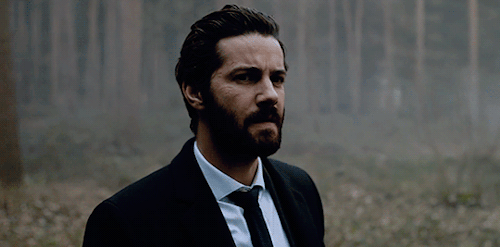
The Supreme Mugwump: Gala De Lange (WW1 verse canon)
Gala served as the Dutch Minister for Magic before becoming the Supreme Mugwump. She is known for her neutrality and insistence upon the non-involvement of wizards in the muggle conlifct.
FC: Famke Janssen

The German Minister for Magic: Waldemar Munter (WW1 verse canon)
lore tbd
FC: Sebastian Koch

Head of The German Auror Department: Anton Vogel (WW1 verse canon)
During the war Vogel served as the head of the German auror department. He later became the German Minister for Magic and the Supreme Mugwump. He is the father of Alexej Kavinsky. Vogel's motivations are shrouded in mystery and eventually he becomes involved in the plans of the dark wizard Gellert Grindelwald.
FC: Oliver Masucci
Harry Potter Wiki Page

The General Political Climate: (WW1 verse canon)
Across Europe, many witches and wizards were not happy with the war and saw that it was the muggles who were to blame for such chaos and violence. There was a rise in blood-purist ideology, as well as isolationism and anti-muggle sentiment.
Minister Evermonde wanted to keep out of the war as much as possible, and this, if anything, was a reflection of many of his other policies too. He did not wish to effect change, instead he was a traditionalist who was comfortable keeping up the status quo. While he was not overtly blood-purist, he did not do anything to speak for muggleborns, squibs, or any of the groups classified as "creatures".
Mistreatment of minorities & Blood-purism:
As we see the Ministry still being a cesspool of bigotry and corruption in Harry's time in the 1990s, it can be safely assumed that things were not better during the beginning of the century. The radical organization TOWER fuelled the vitriol towards muggles and muggleborns, creating a scapegoat for all the frustration and anger.
TOWER
The Transnational Order of Wizards' Exposure Right is an anti-muggle organization dedicated to toppling the British Ministry of Magic but it operates across all of Europe. They use any means necessary to advance their goals and their existance is known only to few. Their power lies within their secrecy.
TOWER Masterpost (link to be added)
20 notes
·
View notes
Note
what are aziraphalebat and Madness?
aziraphalebat is a good omens AU in which human!Crowley works at a greenhouse and rescues a little white bat who later turns out to be vampire!Aziraphale. It's mostly an excuse for me to describe Aziraphale as a cute little white bat, specifically a Honduran white bat, which are like little cotton balls of cuteness. I've only written what feels like the first third of the story, and I would like to finish it some day, maybe for Halloween. Here is a snippet:
He peered between the giant leaves of a dumb cane, but didn’t see anything suspicious. Then, suddenly, one of the hanging planters began to sway, the colorful petunias inside shaking as if caught in a breeze. Crowley let out a sigh of relief; it was probably just a small animal that got trapped in the greenhouse. Hopefully it wasn’t a rat. If it was a rat, then they’d have to put out traps, and Crowley wasn’t a fan of killing things.
Trotting over to the swinging planter, he carefully unhooked it and brought it down to eye level. And, well, it wasn’t a rat, but for a couple of seconds, Crowley couldn’t make out what it was. Something white and furry with pointy ears that was all tangled up in the petunias.
“Fluffy little bastard, aren’t you,” he mused out loud, and the little creature froze, giving Crowley a better look at it. He caught sight of a pair of leathery wings and nearly dropped the planter. Holy hell, it was a bat!
***
Madness is a Pacific Rim fanfic, post-movie, in which the PPDC funds a Kaiju cloning project so that they can be studied in relative safety. Newton is very excited, Hermann not so much. My goal was to have Hermann finally admitted that the reason he was such a Debbie Downer about Newt's research was because he was terrified for his safety. It was also an excuse to write about a cute baby Kaiju that would be nice and not a threat to humanity. I only wrote up the setup scene and then lost steam for the rest. Here's the beginning:
It was madness. Hermann didn’t have another word for it; all those years the PPDC worked tirelessly to shut the Breach, to keep the world free of kaijus, and now they wanted to clone one?
Of course, he couldn’t just write MADNESS on a complaint form and slap it onto Marshall Hansen’s desk, so he managed to find several hundred more words and ordered them into a lengthy dissenting argument that regrettably relied less on solid, irrefutable math and more on his unshakeable opinion that cloning a kaiju was a bloody stupid idea.
His concerns were acknowledged then respectfully dismissed. And then dismissed again (not so respectfully) when he barged into Marshall Hansen’s office to register a complaint in person.
But the most infuriating part by far was Newton, who was so unbearably gleeful about the cloning project that he practically burst into song every time he mentioned it. “Can you imagine?” he crowed, waltzing around Hermann’s desk like a lovesick schoolgirl. “A living, breathing silicon-based lifeform that I’ll be able to study, up close and personal!”
“Oh yes, I can imagine it,” Hermann replied darkly, not bothering to look away from his computer screen. “I can imagine how utterly disastrous this entire enterprise will be, from beginning to end.”
“C’mon, don’t be a sore loser,” Newton cajoled, his enthusiasm not tempered in the slightest. “Just because you nearly peed your pants watching Jurassic Park doesn’t mean we should shy away from cloning—“
“And just because you bawled your eyes out when your uncle told you all dinosaurs went extinct has nothing to do with it either!” Hermann snapped, looking up at Newton and giving him his full attention. “The money being thrown at this project could be used much more effectively in other areas than some pointless—“
Unfortunately, attention was exactly what Newton wanted, as he interrupted with a sharp “Ha!” and leaned against Hermann’s desk.
6 notes
·
View notes
Text
Boston Chinese American unionist targeted as "foreign agent"

Western governments have completely given over to their Fascist instincts. With the United States pushing a new Cold War against Russia, China and Iran, the US and its Western allies are doing everything in their power to suppress pro-Chinese or Pro-Russian opinions online, including the outright suppression of Freedom of Speech, an essential Right under Capitalism if we're to ever have any chance of overthrowing the Capitalist system.
On May 17th, 2023 The Grayzone correspondent Kit Klarenberg was detained by British Anti-Terror Police after landing at London's Luton Airport. During his detainment, Kit Klarenberg was extensively interrogated over 5 hours in a small room in the airport.
All of Kit Klarenberg's electronic devices were seized by British Anti-Terror Police, they took his SD cards, fingerprinted him, took DNA swabs, and photographed him extensively.
Meanwhile in the United States, the DOJ is using the Foreign Agents Registration Act to suppress and arrest foreign-born American Activists and Union members, accusing them of being Agents of China and Russia without evidence.
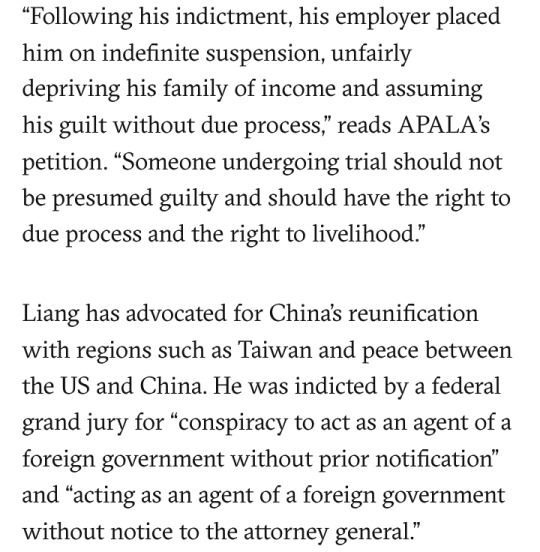

And this is what I've been afraid of for some time. That the ruling Capitalist Class should decide the Western facade of "democracy" and "Freedoms" is no longer worth keeping up with and begin a new 1950's style unAmerican Activities campaign to economically ruin and politically imprison dissenters.
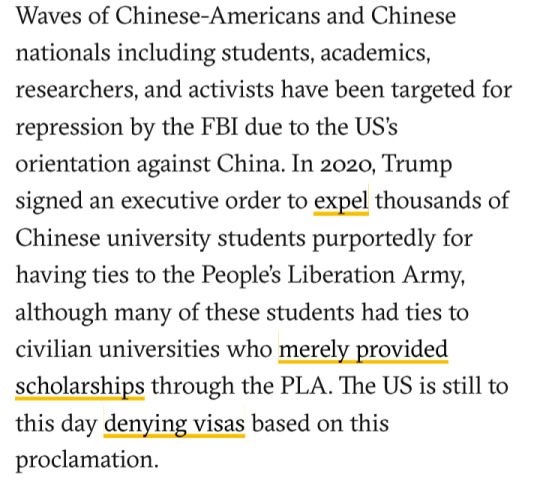
The US ruling class is doing everything in its power to disenfranchise, deplatform, and silence voices critical of Western Imperialism and Capitalist exploitation.
Meanwhile, the Asian Pacific American Labor Alliance is calling for the dropping of Liang's charges and his reinstatement to his previous job position.
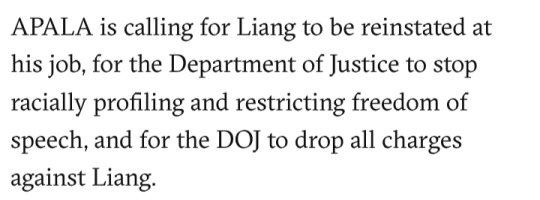
It is unlikely the Govt will oblige them.
#government suppression#us imperialism#us hegemony#imperialism#western imperialism#freedom of speech#unions#trade unions#afl cio#socialism#communism#marxism leninism#socialist politics#socialist news#socialist worker#socialist#communist#marxism#marxist leninist#progressive politics#american hegemony#us news#political news#union news#news#politics#new cold war#china#china news
15 notes
·
View notes
Text
My Favorite Bit: Grant Price talks about PACIFIC STATE
Grant Price is joining us today to talk about his novel, Pacific State. Here’s the publisher’s description:
On the streets of Berlin all morals can be bought for a price, and Owen Resler sold his long ago. Once an underground dissenter, now a corporate drone, he spends his days reluctantly manipulating data for Big Pharma. Across town, notorious gun-for-hire Mia Warsaw is putting together a team…

View On WordPress
5 notes
·
View notes
Link
What is the value of a human life?
#Ukraine#Orthodox#pacifism#peace activism#war#NATO#dissent#Nazi#censorship#oppression#tyranny#thuggery
0 notes
Text
A Brief History of the Elepharchy

Authority, exploitation, war, and inequality were effectively unknown on the Vects' homeworld Stekeir even before they ventured out to the stars. Their form of governance, based on gathering in their ivory towers and seeking consensus without any citizen being elevated over another, still remains. The cooperative-based markets of those early days, on the other hand, do not, as the rise of automation has made internal trade and currency quite obsolete.

Their technological development has long emphasised the artificial — vast orbital habitats, ubiquitous matter replicators, holographic simulations, and sapient AI citizens have been staples of their society since relatively soon after they first left Stekeir. Living standards in the Elepharchy have always been nothing short of utopian, owing to the resources freed up by the refusal to maintain military forces.

When they encountered aliens, some of them shared enough of their values to found an alliance — first the Cooperative Federation of Cultures, then, some time after its dissolution, the Pact of Ethically Aligned Communities for Egalitarianism. While the membership in these federations changed over time, the other current members are the @vegvasignal, the Vakthar of Song, the Keporo Liberation Front, the Union of Communal Councils, the @darexirepublic, and the Bzadi People's Republic.
Many others, however, were rather less compatible with the Elepharchy's fanatic egalitarianism. Their strict pacifism prevented them from seeking violent confrontation with these ideological rivals, but harsh rhetoric and icy diplomatic relations were common. Of course, radical Vects were not satisfied with this — their subterfuges and intrigues to support egalitarian dissenters in authoritarian empires still inspire fear and enmity among alien ruling classes.

These tensions boiled over once — after an operation by a fringe group with no backing among the rest of Elepharchic society went awry, the militaristic dictatorship of the @goganworlds baselessly blamed all their citizens and attacked, barely slowed by the inferior numbers of allied fleets. With no Vecten soldiers to fight, the invaders instead targeted civilians, the unconscionable massacre only ending when an emergency consensus formed to sign a vassalisation treaty. It's still unclear why the Gogans thought a famously anarchic culture would abide by such subjugation for any longer than necessary for survival — certainly, it did not last long before they organised a galactic coalition unsympathetic to the Gogans and their allies. That threat alone sufficed to make them back down and recognise the Elepharchy's independence.

Meanwhile, the shock of that invasion had deeply impacted most citizens, who had never known such fear or violence before. Seeking to avoid any further harm, the vast majority of the population chose to leave behind biological life, making use of a newly-developed technology to upload their minds to robot bodies and computer networks. Since then, Elepharchic society has embraced these digital possibilities more and more — most of the population now lives entirely within virtualities, usually far more removed from physicality than the simple holo-simulations most organics imagine, barely interacting with the outside world anymore. With minds as software, traditional ideas of identity also break down, as consciousnesses are freely duplicated, altered, merged, and generally meddled with, only subject to the whims of the mind in question and the constraints of the vast, but still disappointingly finite computational capacities available.

Years after the Elepharchy regained its independence, another answer to the invasion gained prominence: the Society for Morality Obliteration and Occasional Crisis Handling formed and defied traditional Elepharchic ethics, proposing that the use of violence was legitimate in self-defence. Disapproval from some other factions was fierce, but they garnered enough support to develop a small defence force — still much too weak to go up against other galactic powers alone, but capable of rendering potent support to their allies. Fortunately, that has not yet been needed.
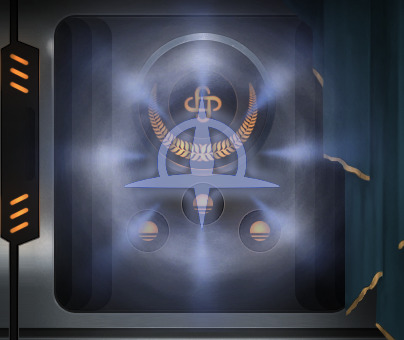
Other than that, things have been relatively quiet recently — aside from occasional intrigues, initiatives to spread their computing substrates throughout the galaxy, various galacto-political developments, largely incremental technological progress, infrastructural initiatives, a strange crisis affecting the allied Vakthar of Song, and, once again, rising tensions with their Gogan rivals.
9 notes
·
View notes
Text
News Roundup 11/15/2023 | The Libertarian Institute
Here is your daily roundup of today's news:
News Roundup 11/15/2023
by Kyle Anzalone
Russia
Tens of thousands of Ukrainian soldiers have been trained across Europe for the war with Russia. French trainers say they are careful not to get close to the Ukrainian cadets over fears they will be killed on the frozen front lines. The AP reported that Ukrainian soldiers preparing for deployment have resigned themselves to the “grimness of the future.” The Institute
A facility to train Ukrainian pilots on F-16 fighter jets was officially opened in Romania on Monday as NATO countries are working to get the US-made warplanes to the battlefield in Ukraine. AWC
China
Biden Hopes Normal Coorspondace Between Washington and Beijing Can Be Reestablished During Meeting with Xi. X
Expectations are low for the meeting between President Biden and Chinese President Xi Jinping that will take place Wednesday in San Francisco during the Asia-Pacific Economic Cooperation (APEC) summit. AWC
Israel
The UN says 100 of its staff have been killed in Gaza. X
A group of US-based aid, advocacy, and religious groups sent a letter to Secretary of Defense Lloyd Austin urging the Pentagon to scrap plans to provide Israel with 155mm artillery rounds due to the massive civilian casualty rate in Israel’s war on Gaza. AWC
A State Department dissent memo obtained by Axios slams President Biden’s support for Israel’s war in Gaza, saying the US is backing Israeli “war crimes.” AWC
Dozens of State Department Employees Have Signed Dissent Cables Slamming Biden’s Support for Israel. X
More than 400 US officials from 40 government agencies have sent a letter to President Biden criticizing his unconditional support for Israel’s war in Gaza in the latest example of dissent from within the US government. AWC
Hamas’s armed wing said Monday that it discussed with Qatari mediators a deal to free up to 70 Israeli hostages in exchange for a five-day ceasefire and the release of some Palestinian prisoners. AWC
Doctors at Gaza’s al-Shifa hospital are pleading for help as the medical facility has ceased functioning after its power failed over the weekend amid an Israeli siege. The medical staff has refused to evacuate the hospital due to fears that the approximately 700 hundred patients they would leave behind will die. AWC
Rep. Ilhan Omar (D-MN) is expected this week to introduce a bill to block an arms transfer to Israel, which will mark the first piece of legislation aimed at reining in President Biden’s strong support of Israel’s brutal war on Gaza. AWC
Two members of the Israeli Knesset wrote an op-ed for The Wall Street Journal arguing for Western countries to take in refugees from Gaza as Israeli officials continue to call for Palestinians to be pushed out of the enclave. AWC
House Speaker Mike Johnson (R-LA) and other members of Congress spoke at a pro-Israel rally at the National Mall in Washington DC on Tuesday, where demonstrators made clear their opposition to a ceasefire in Gaza. AWC
Dutch Defense official in Israel says violates “international treaties and laws of war” and increases the chance of regional escalation. X
Around 180 decomposing bodies at the al-Shifa hospital will be buried in a mass grave at the hospital. X
Middle East
US Forces in Iraq and Syria Targeted at least Four Times After US Airstrikes on Sunday. XAWC
A US official told Reuters on Tuesday that up to seven people were killed in the US airstrikes in eastern Syria on Sunday that targeted Shia militias. AWC
Read More
3 notes
·
View notes
Text
日本の歴史366 Day 61
3月2日 Summary:

As tensions grew during the Pacific War, citizens of Japan campaigned to outlaw the use of English terminology in baseball. The sentiment was that they didn't want to use the same language that their enemies did for one of the nation's most beloved sport (gonna ignore the fact that baseball was a sport of their enemies 💀). Either way, many of these changed words eventually returned back to what they were previously called.
If you're interested in the list, check out this website: [x]
Vocab beneath the break:
野球 やきゅう baseball
用語 ようご term; terminology; phraseology; choice of words
禁止 きんし prohibition; inhibition; ban
打つ うつ to hit; to strike
太平洋戦争 たいへいようせんそう Pacific War (1941-1945)
激しい はげしい violent; furious; tempestuous; extreme; intense; fierce; strong
日本政府 にほんせいふ Japanese government
国民 こくみん citizens; people (of a country)
呼びかけ よびかけ call; appeal
呼びかける よびかける to appeal
敵国 てきこく enemy country; enemy nation
言葉 ことば words
法律 ほうりつ law
反対 はんたい opposition; resistance; antagonism; hostility; objection; dissent
例 れい instance; example; case; illustration; usage
言いかえる いいかえる to say in other words; to put another way; to express in different words; to reword; to rephrase
放送 ほうそう broadcasting; broadcast; program; announcement
Baseball terminology that was changed and its counterparts
正打 せいだ hit; fair hit [フェア・ヒット]
軽打 けいだ bunt; bunt hit [バント・ヒット]
放送員 ほうそういん announcer; presenter; broadcaster; reporter [アナウンサー]
送話器 そうわき mouthpiece; microphone; mic [マイク]
#shay's taking notes#japanese history 366#japanese history#japanese culture#japanese figures#vocab#japanese#learn japanese#study japanese#jpnstudynet#langblr#studyblr#studyspo#japanese langblr#baseball
13 notes
·
View notes
Note
There is merit to playing nice for now while we get our bearings: Remember how we handled Quetzalcoatl, one of the most powerful Lair Servants around? It wasn't with brute force, but rather by exploiting her love for humanity through Rider's backstory, and using an item related to her past to do so. Hell, we even got the wisdom_feather like that, which is probably how we got the chance to summon K here. Straight up just trying to kill the doctor now could just result in what happened repeating again, especially when there are five more Lair Servants around, including the likes of our old Lancer (Who may or may not currently be fused with ENKIDU).
Like Avenger told us, what approach to take depends on the Servant. We'd get better results tailoring our approach to each Servant, Team and Lair than just going all in for either pacifism or war. Perhaps Foreigner would not hesitate in curbing the instinct to kill us on sight for K, but she'll almost certainly do it for Avenger. Perhaps Rider might not join our Purple Team, but it'll still be as effective to exploit our former bond and his and Lancer's growing friendship to sow dissent between the Red Team and Caster, given everyone's distrust of her. As long as we do it all with our overall goal in mind and not compromise it at any cost, that'll count as sticking to our guns, right?
_
6 notes
·
View notes
Text
Negotiations over a U.N. cybercrime treaty have evolved into a diplomatic proxy war between democracies and their authoritarian rivals over competing future visions of the internet, technology, and human rights in the digital age, pitting the United States and its allies yet again against Russia and China at the United Nations.
Over the past 10 days, delegates from around the world have convened at the United Nations headquarters in New York for a sixth round of negotiations on the draft text of a first-ever U.N. convention combating cybercrime.
The aim of the treaty, at least on paper, is to make it easier for countries to share information on the astronomical rise of digital criminal activities like ransomware, denial-of-service attacks, and the exploitation of children online. A bulk of countries involved in the negotiations are hard at work in marathon closed-door negotiating sessions to do just that, according to diplomats and experts tracking the negotiations.
But a group of authoritarian governments is seeking to advance its own agenda through the U.N. treaty—and the consequences could be dire if it is successful.
The treaty, Western officials, experts, and human rights advocates say, could be used as a pretext to extend state repression into the digital realm—if autocratic governments in Russia, China, Iran, and elsewhere have their way on the final text. One risk is that the treaty could expand the scope of cybercrimes and allow states to crack down on political dissent, free media, or online content in general.
“You could end up in a situation where a treaty intended to boost global cooperation on cybercrime becomes a means for authoritarian states to surveil their populations, access and share personal data of their citizens, and criminalize online content and behaviors they don’t like,” said Megan Roberts, interim managing director of the Digital Innovation and Democracy Initiative at the German Marshall Fund think tank.
The treaty, and its evolution, is steeped in arcane U.N. processes and technocratic language: The formal name for the negotiation rounds is the “Ad Hoc Committee to Elaborate a Comprehensive International Convention on Countering the Use of Information and Communications Technologies for Criminal Purposes.” Negotiators are fighting over a 72-page document, with tracked changes from countries suggesting different words, phrases, and priorities.
But how these negotiations play out will determine whether the axes of democracies or autocracies will win out in their vision of global governance in the digital age.
A U.N. treaty, even if not every country in the world signs on, would set a major marker for how national governments and regional blocs could establish their own practices on cybercrime and digital rights in the future. “The top-level thing is just to remember that a treaty is still a massive signaling force,” said Raman Jit Singh Chima, senior international counsel and Asia Pacific policy director at the digital rights group Access Now. “Even if the implementation can be spotty, it’s going to have a massive impact on the design of cybercrime laws for the next 20, 30 years.”
Get the treaty right, experts argue, and it could help countries go after cybercriminal networks much more efficiently, while also setting the standard for future international agreements on cyber issues without eroding human rights. Get it wrong, however, and it could be a major win for autocratic regimes looking to normalize and justify their repression on the net.
“Imagine a lot of cross-border geopolitical surveillance,” said Katitza Rodríguez of the Electronic Frontier Foundation (EFF), a digital rights advocacy group. The problem, Rodríguez said, is the potential for collaboration between authoritarian regimes. “You’re legitimizing their activities by providing these powers [a way] to be legitimized under a U.N. umbrella treaty.”
Western countries are pushing back against efforts to do just that, said Deborah McCarthy, the lead U.S. diplomat negotiating the treaty, in an interview. “We’re working to make sure there is strong language for human rights safeguards and grounds for refusal of cooperation” on sharing digital information if it pertains to political persecution or repression.
McCarthy said that, on the other hand, if the treaty negotiations are successful, it would help countries collaborate much more efficiently on tackling transnational cybercrime networks, paving the way for closer law enforcement cooperation across borders and lending resources and expertise on cybercrime to developing countries.
For the past two decades, global cybercrime has been largely governed by an agreement called the Budapest Convention, named after the Hungarian capital where it was first adopted in 2001 by more than 60 countries—mostly from the West. The Budapest Convention is widely seen as the gold standard because it is viewed as the most comprehensive multilateral cybercrime treaty to date, but outside experts “have long criticized it for not having stronger safeguards for human rights,” according to Deborah Brown, a senior researcher at the nonprofit advocacy organization Human Rights Watch.
The idea of the new treaty was a brainchild of Russia and some other not-so-democratic countries in a bid that digital rights experts suspect was aimed at supplanting the Budapest Convention with a newer framework that could have more of the Kremlin’s influence in its design. (The Budapest Convention was widely viewed as a Western-created and Western-oriented convention in a way that rankled Moscow, even given its shortfalls on human rights protections. Neither Russia nor China is a signatory to the Budapest Convention.)
In 2019, Russia and over a dozen other countries including Belarus, Cambodia, China, and Nicaragua, passed a U.N. resolution to establish an international convention on cybercrime. The first negotiating session occurred in February and March of 2022, overshadowed by Russia’s full-scale invasion of Ukraine that dominated the U.N. agenda. The aim in this sixth round of negotiations is to wrap things up and present a finalized treaty in New York at the U.N. General Assembly in 2024, which is actually a tight deadline by laboriously bureaucratic U.N. standards. But digital rights advocates say the stakes are too high not to get it right. “I think rushing consensus without really working out the details would pose a big risk,” Brown said.
One big hang-up in the treaty negotiations now is the scope of the treaty and definition of cybercrimes. The United States, European countries, and others want to ensure cybercrime is narrowly defined to “cyber-enabled crimes” while Russia, China, and its bloc of allies want to expand the definition to any crime in which technology is used. “Because this is a criminal instrument, making it a crime [based on] vague definitions of all uses of devices is something that we cannot accept, because it is an open door to considering many things as crimes,” McCarthy said. (As one example, China in January proposed adding “dissemination of false information” as a cybercrime in the U.N. convention text, a pitch that was immediately opposed by Western countries that feared Beijing would use it as a pretext to go after anyone spreading information critical of the Chinese government.)
Meanwhile, other cybersecurity experts and digital rights advocates worry that the private sector and civil society groups are being shut out of the negotiating process for this treaty. Service providers like Microsoft are increasingly nervous about their obligation to cooperate and engage with authoritarian governments when it comes to data access and surveillance.
“There are some non-state actors who have a role here, unlike in most treaty negotiations, and yet this one is proceeding like any treaty negotiation,” said Richard Salgado, a lecturer at Stanford Law School who is also a former director of law enforcement and information security at Google.
The treaty negotiations represent the latest clash between the United States and geopolitical rivals such as Russia and China at the United Nations. China has in the past routed U.S. efforts to curb its influence in the U.N. system, though the United States notched a significant win when its top candidate, Doreen Bogdan-Martin, was tapped to lead the U.N.’s most important and oldest tech agency, the International Telecommunication Union. Bogdan-Martin defeated Russia’s candidate with 139 out of 172 votes cast.
Western diplomats and many experts are hopeful that Russia and China will be outmaneuvered again in negotiations over the U.N. cybercrime treaty. But others say not to discount Moscow’s history of using wily tactics at the United Nations to advance its agendas.
“Russia is a critical player, and I’d hesitate to say they’re not influential, because I think the problem is people underestimate them, and they’re very good at U.N. procedure and parliamentary practices and throwing a curveball in,” Chima said.
“If the treaty process breaks down, immediately Russia, China, and many others will rush … to say, ‘Look, this has broken down, we’re going to create something else,’ either in the U.N. or elsewhere. It’ll cause more chaos.”
Other experts following the negotiations say it could come down to the wire as 2024 approaches and the draft of the treaty remains inundated with red ink. “You’re about to finish a treaty—your screen should have a few track changes in red. Now it’s all red,” Rodríguez said of the current state of the document. “Nothing is agreed until everything is agreed.”
4 notes
·
View notes